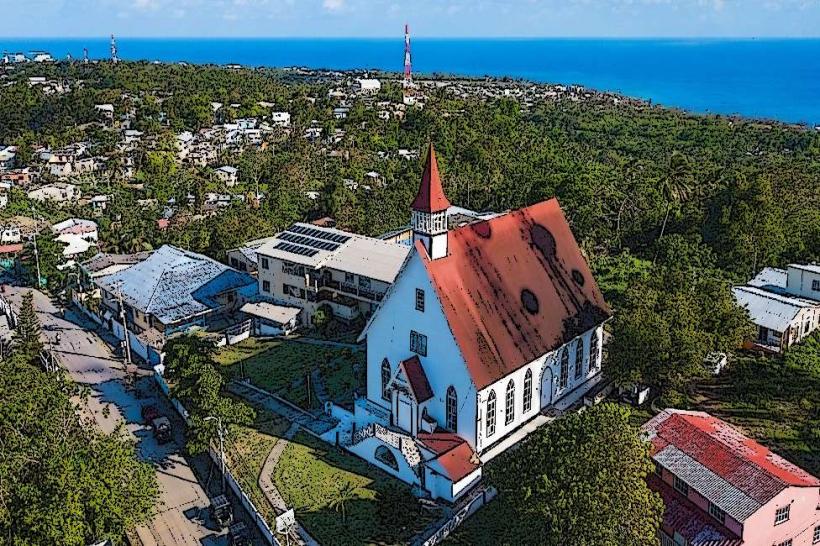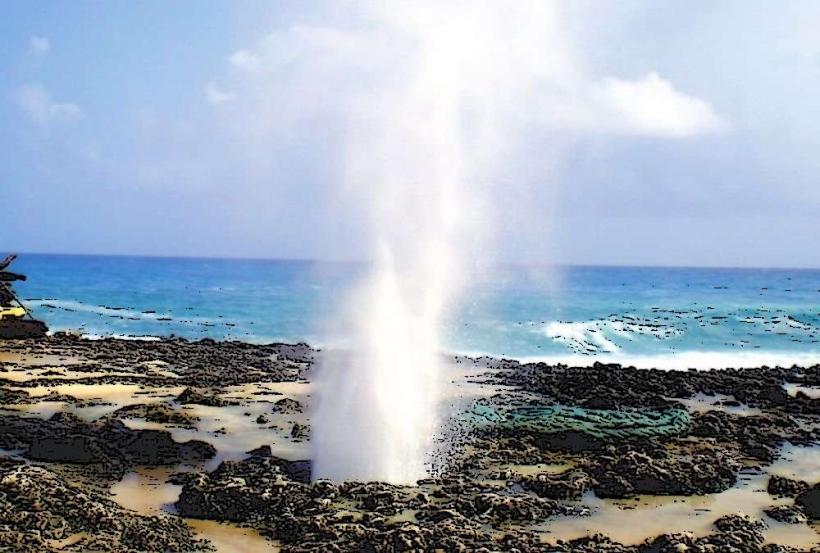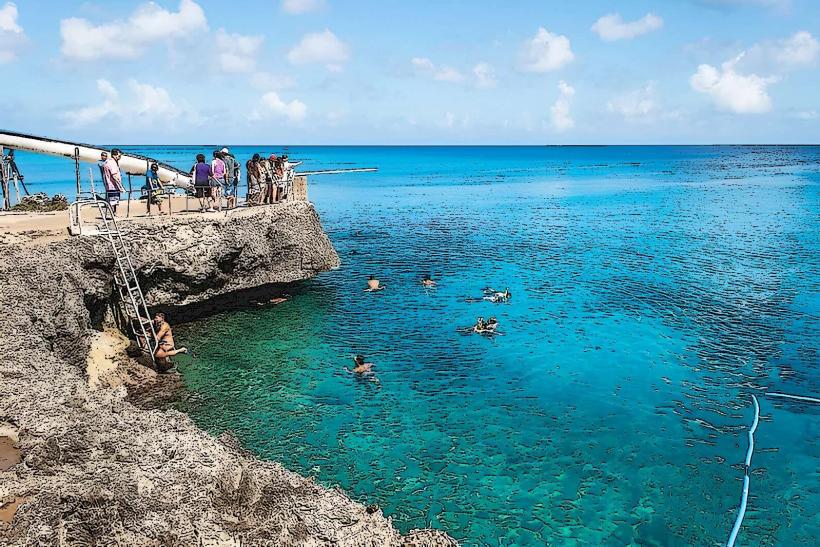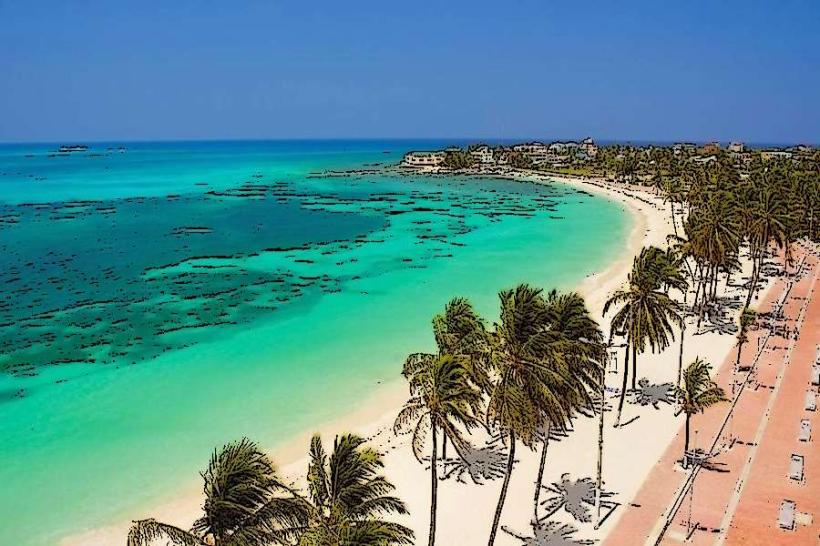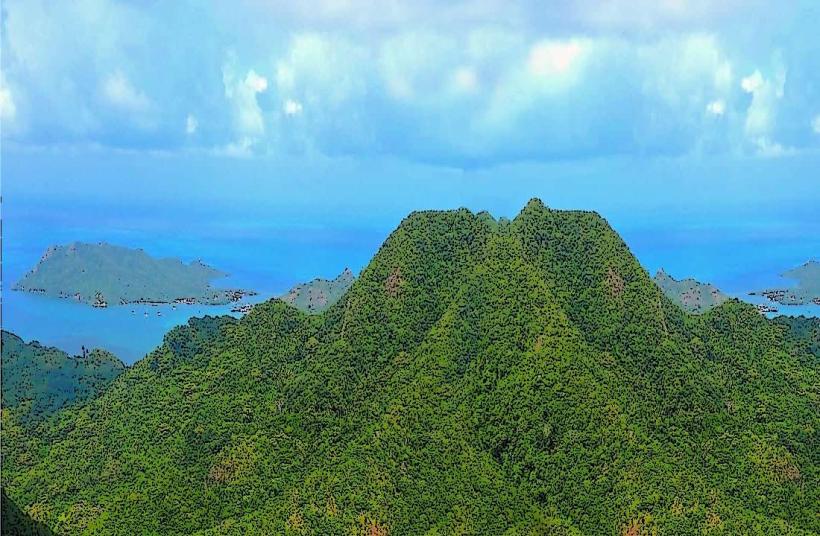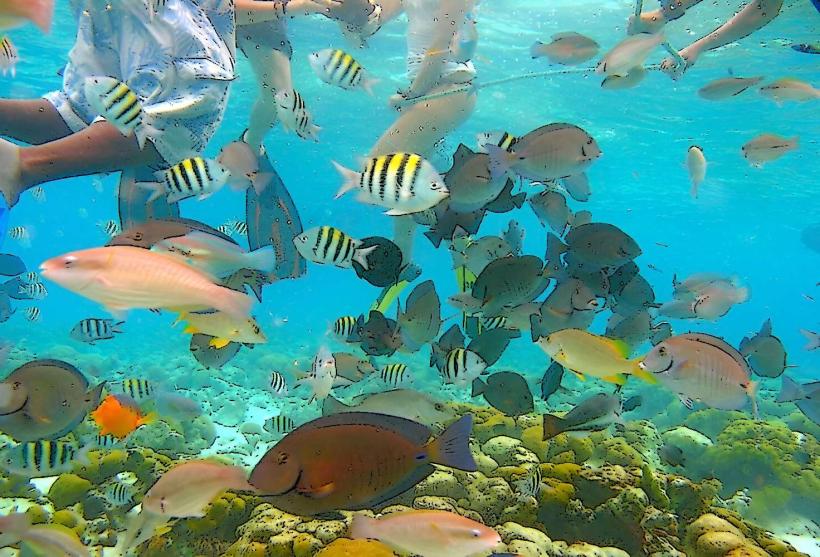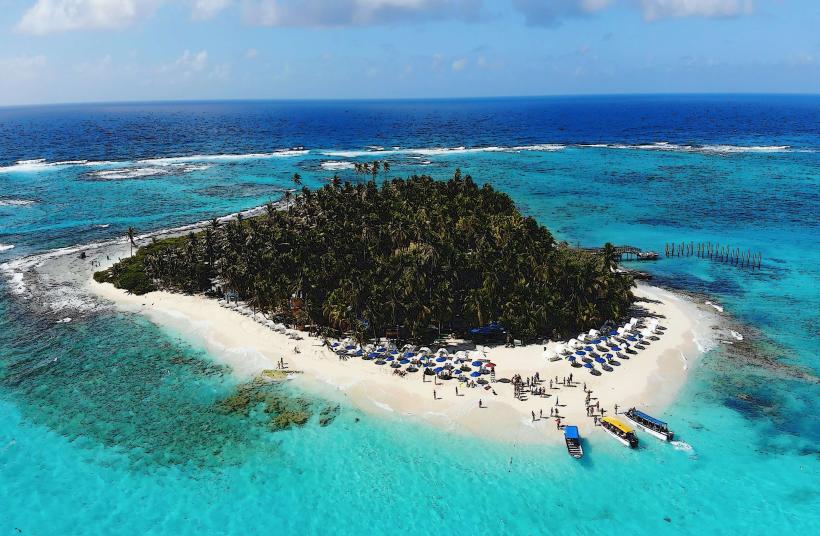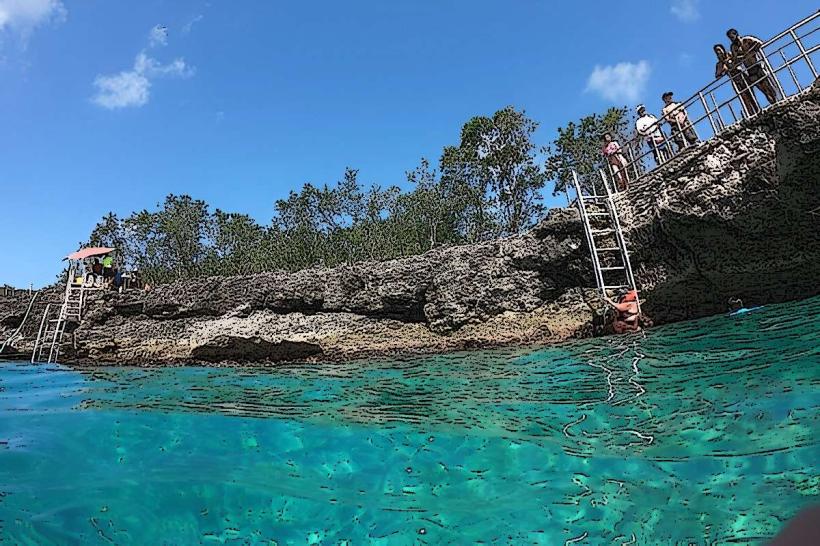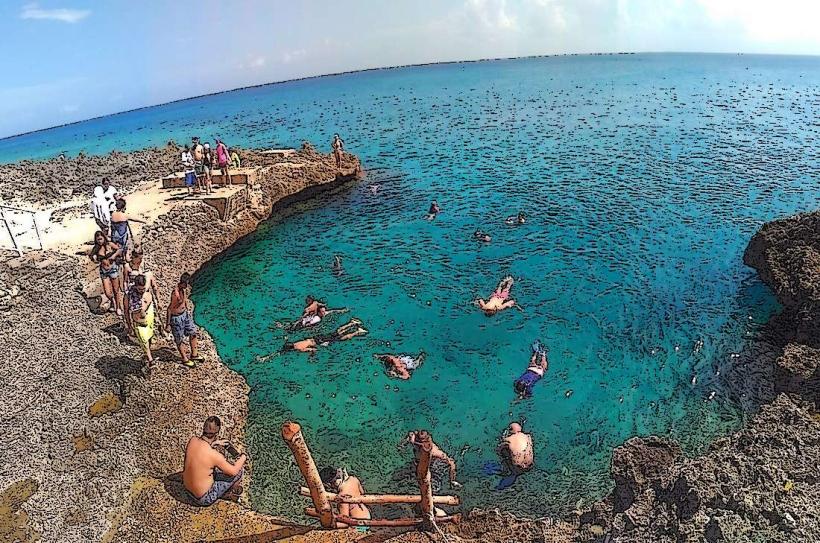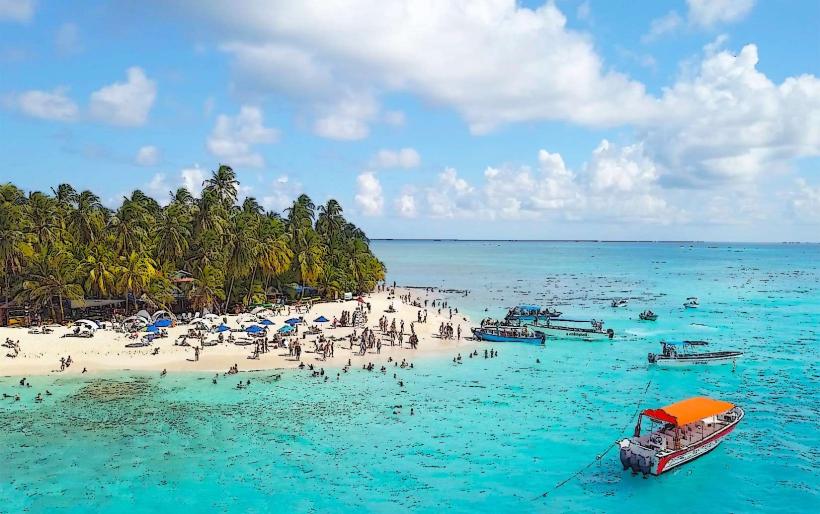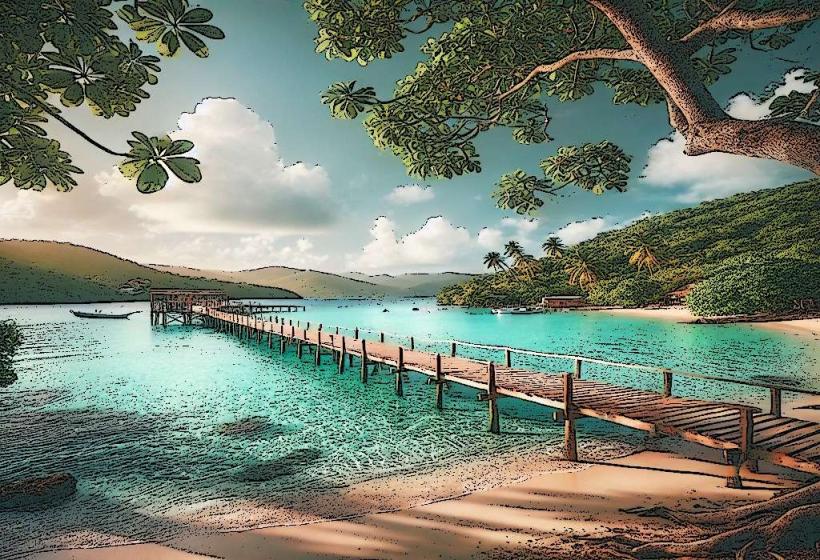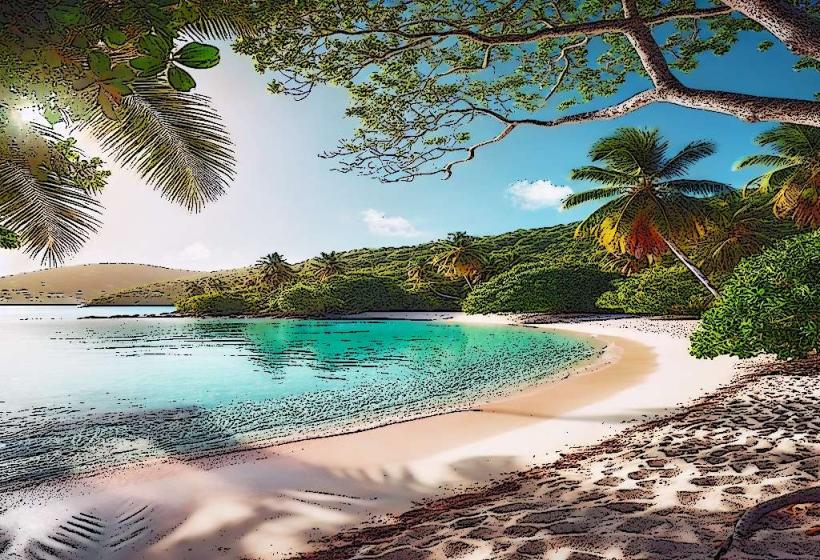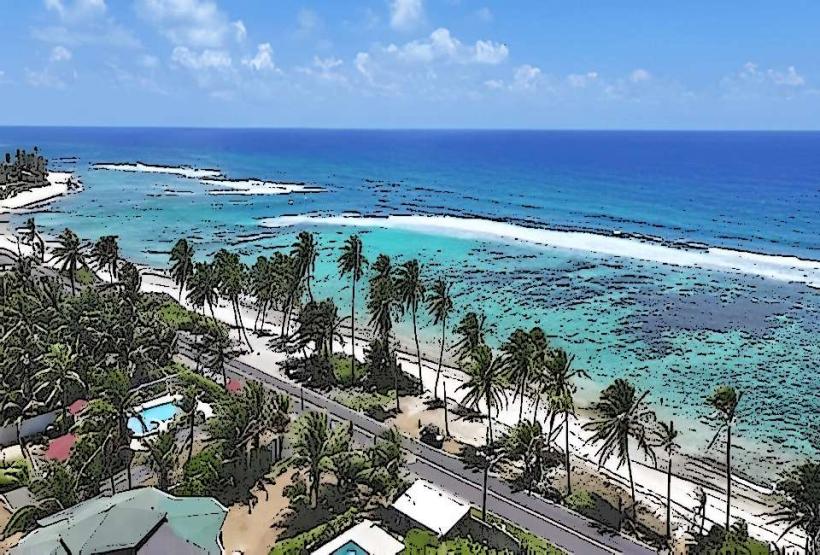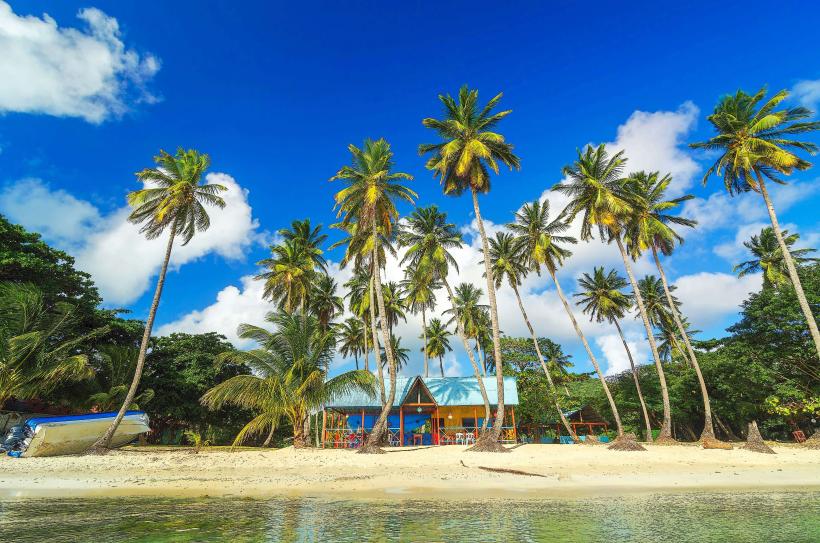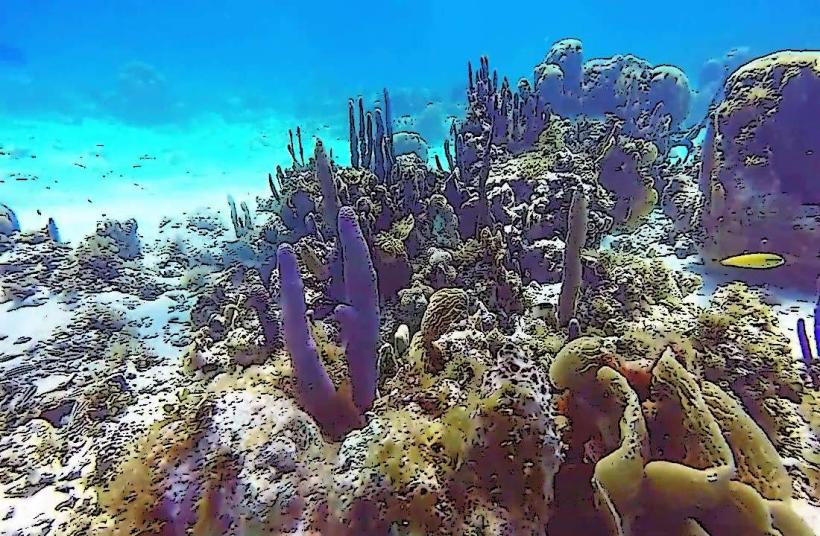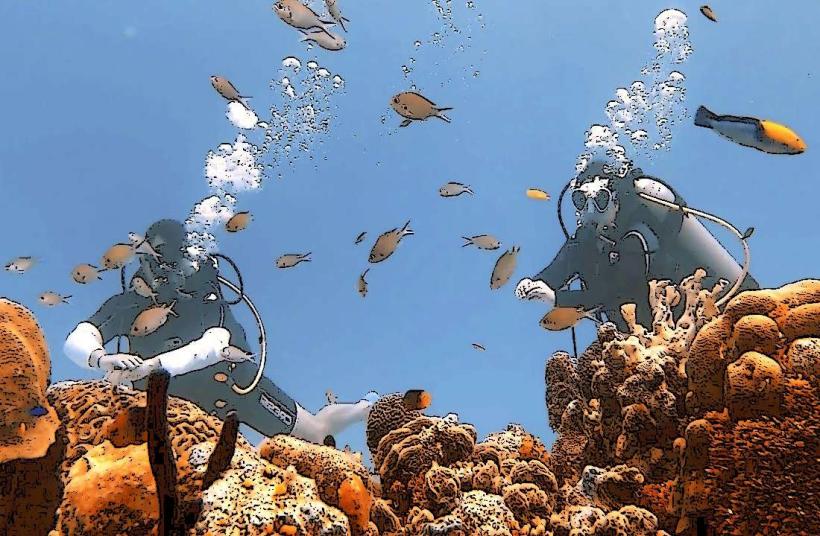Information
Landmark: Cueva de MorganCity: San Andres
Country: Colombia
Continent: South America
Cueva de Morgan, San Andres, Colombia, South America
Cueva de Morgan is a cave system located on the island of San Andrés, Colombia.
This geological formation is situated on the western side of the island, approximately 5 kilometers from the main town of San Andrés.
Visual Characteristics
The cave entrance is a fissure in a coral rock cliff face. Inside, the cave consists of interconnected chambers and tunnels. The rock walls are primarily composed of fossilized coral and limestone, exhibiting a rough, porous texture. Stalactites and stalagmites are present in some sections, formed by mineral deposits from dripping water. The interior is dimly lit, with natural light penetrating only near the entrance.
Location & Access Logistics
Cueva de Morgan is accessible via the island's main coastal road, Avenida Circunvalar. It is located approximately 5 kilometers southwest of the central business district of San Andrés. Parking is available in a designated gravel lot adjacent to the cave entrance. Public bus line 01, which circulates the island, stops within a 50-meter walk of the site.
Historical & Ecological Origin
The cave is a natural formation, created over millennia by the erosion of the island's coral reef base. Its name derives from local lore associating it with the pirate Henry Morgan, who is said to have used it as a hideout. The geological classification is a coastal karst cave, formed within the uplifted coral limestone of San Andrés.
Key Highlights & Activities
Exploration of the cave's main chambers is permitted. Visitors can observe the rock formations and the natural light patterns near the entrance. The site is also known for its historical association with piracy. No specific guided tours are offered on-site, but local guides may be available for hire at the entrance.
Infrastructure & Amenities
Basic amenities include a small, open-air ticket booth at the entrance. Restrooms are not available on-site. There are no dedicated shaded areas within the cave itself. Cell phone signal (4G/5G) is generally available at the cave entrance and in the immediate vicinity.
Best Time to Visit
The best time of day for photography within the cave is mid-morning to early afternoon, when direct sunlight penetrates the entrance, illuminating the rock formations. The island of San Andrés experiences a tropical climate year-round; however, the dry season, from December to April, offers the most consistent weather for outdoor exploration.
Facts & Legends
Local legend claims that Henry Morgan hid a significant portion of his treasure within Cueva de Morgan. While no treasure has ever been definitively found, the story contributes to the site's mystique. A specific tip for visitors is to wear sturdy, closed-toe shoes, as the cave floor can be uneven and slippery.
Nearby Landmarks
- The Grotte de Morgan (0.1km North)
- West View (1.5km North)
- Hoyo Soplador (3.0km South)
- Spratt Bight Beach (5.0km Northeast)
- La Loma (4.5km East)


